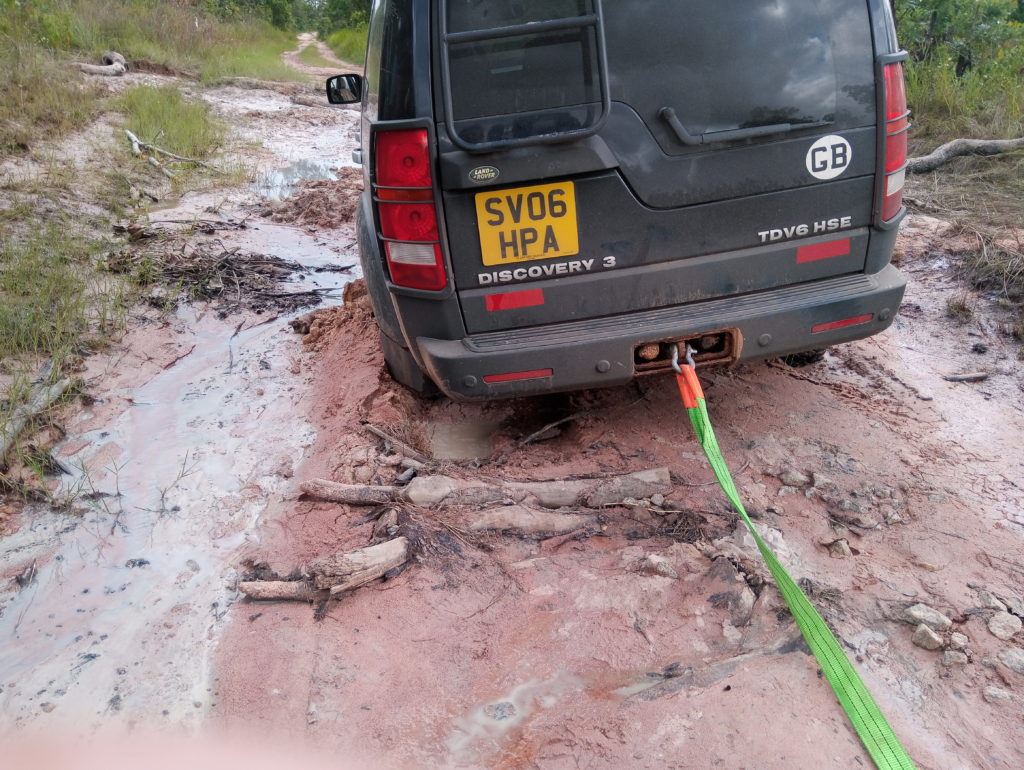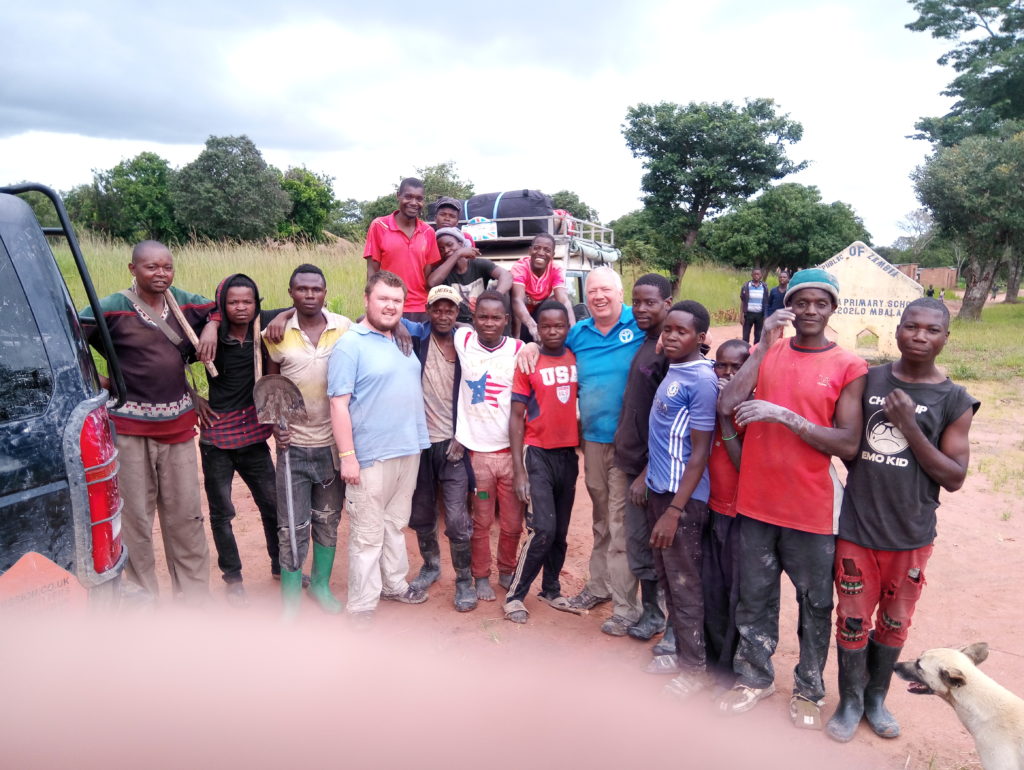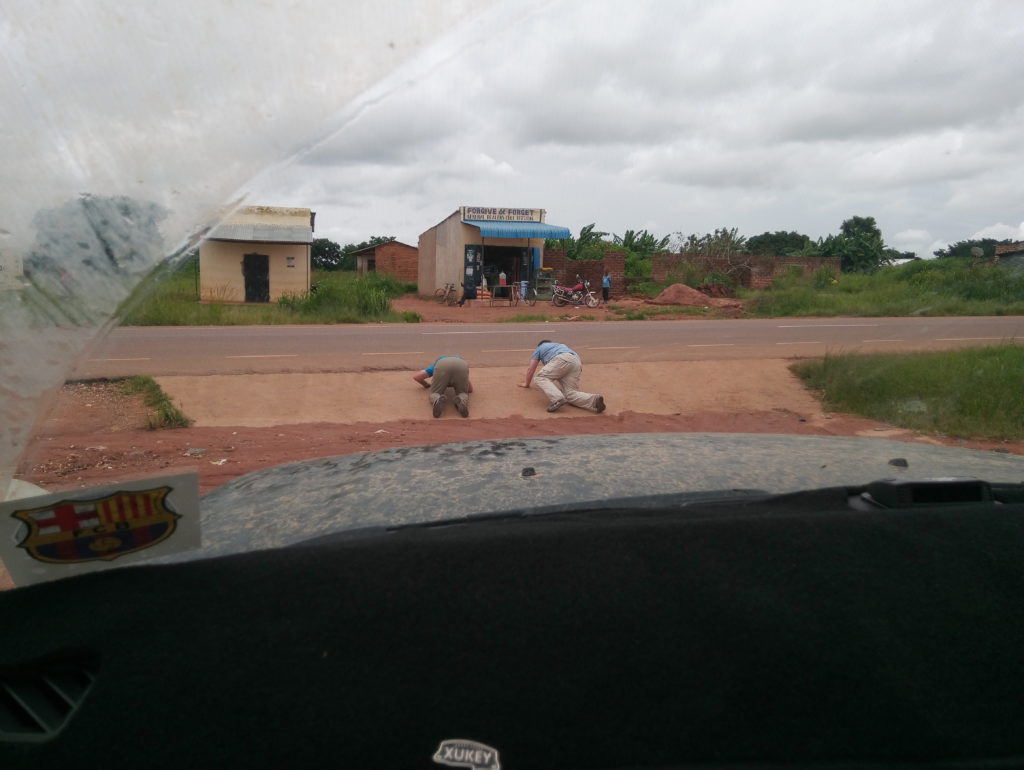Zambia: Beautiful Yet Broken
More pictures to come everybody, look out for updates!
It is indeed the only feasible way to describe Zambia, since nothing else even remotely comes close. Never in my entire life have I encountered a situation where governance is non-existent to the point where blatant extortion and mistreatment of locals and tourists alike is as commonplace as not just accepted, but seemingly encouraged by those responsible for enforcing the rule of law, the police.
This, I believe starts with the needless bureaucracy I alluded to in my previous post. However, what I was not just an isolated case as I was indeed hoping it to be, but a mere starter for what was to come. We quickly encountered our main course the same day I uploaded by last post, a main course that was to last some time.
Having visited Victoria Falls, written and uploaded my last post, we went out for food which was a fairly enjoyable meal in itself. What I had to eat I cannot remember because of what happened next. As we got back in the car to head back to our dilapidated lodge, BANG, BANG, BANG! I swung my head around to see exactly what this kafuffle was, only to see a very angry policeman at the front passenger door window.
“What is this?” he shouts at Sam, seemingly trying to intimidate him; “why are you wearing camouflage trousers?” he continues. “Get out of the car” as everyone in the restaurant is now staring at us. We couldn’t understand what the issue was, as he continued to say how we apparently have come into his country to terrorise the public and how he could never wear them in our country, a claim I found amusing because they’re regarded as fashion wear, not just in the UK, but just over the border in Tanzania!
Anyway, Sam and Tony get in the police car as myself and Yvonne follow them closely to the police station. This is where it gets particularly amusing, as the plain clothed police now dealing with Sam, whilst they explained that they are illegal in Zambia and can result in up to fifteen years imprisonment, not only could they see it was an honest mistake but also a total waste of their time! “We’re going to have to confiscate your trousers but this is just to keep the inspector off my back, we’ve really got more important things to deal with than tourists wearing camouflaged trousers, it’s obvious to us that you’re not a terrorist” the plain clothed officers said.
I think we were more frightened than Sam, who’s used to such antics by the Kenyan police, but even so, it was an eye-opening introduction for what was to come. What came was just ten kilometres outside of Livingstone, a city that really does nothing for me at all. “I want to see your road toll” the policewoman said. The road toll is basically a bit of paperwork telling you where you intend to go and costs just twenty US dollars. However, the paper actually clears you to drive throughout Zambia, something I will get to later.
Road toll duly handed over for examination, she gave it back to us and we were on our way. Not long after, I got pulled over again, this time for “speeding” and cue my first ever speeding ticket. “You were doing sixty-six in a sixty [kilometres per hour] zone” the policeman explained, showing me the radar footage. I explained to him that there was no sixty sign and about a kilometre or two before there was a one hundred kilometres per hour repeater sign. “It doesn’t matter, it’s a built-up area”, pointing to the one or two buildings around. Handing over three hundred kwacha’s, I had to sign an admission of guilt. “If you get stopped again just show them this and they will let you go”, something that to me completely ruins the point of issuing a so-called fine in the first place!
That night we stopped at a completely delightful campsite called The Moorings, a name ironic because not only does it not have any moorings there, but it’s also nowhere near any water. We actually elected to stay in a family lodge which, whilst basic, was absolutely perfect for us. In fact, the location in general was great, not too far from the nearest town, Monze, but it felt that you were in the middle of nowhere, helped by being two kilometres up a dirt track. The Moorings campsite reminded me so much of Beaudesert in Cannock Chase, if a little bit more open and lacking the innate dampness that seems to blanket Beaudesert. Instead it was warm, sunny and in general a thoroughly relaxing and enjoyable experience, so much so we stayed for two nights.
After the second night we began our drive towards Zambia’s capital Lusaka, one we were not exactly looking forward to in the least. My experience with capital cities is that they are at best a nightmare to drive around, a maze of streets clearly laid out well before the advent of the car, and far too much traffic to deal with. Lusaka must rate as the easiest city to drive through ever, with good traffic and logical streets; certainly the main thoroughfare was anyway.
We made solid progress northwards, dealing with the constant road tolls, police and council checkpoints, all looking for their little something in wish to extort money from us. For once we made it through the day without them claiming we had committed some grave wrongdoing, no we were just asked blatantly for money because the policeman claimed that “I haven’t issued enough fines today”, in other words he thought that we were an easy target.
We stayed overnight at the wonderful Forest Inn, this time the name was apt because we were in a desert, I mean a forest. The rain was horrendous, even wipers on full speed couldn’t deal with the downpour. Intermittent wipers aren’t needed out here! It was so surprising to us that the red, iron rich soil which so typifies East Africa is so prevalent this far south. It’s a soil which has this unbelievable ability to stain everything, and you never ever get it out.
That night after a lovely meal we sat in the lounge area and watched one of my all-time favourite Jackie Chan movies which just happened to be on the TV, Tuxedo. It was great watching something which I hadn’t seen in ages (the last time I saw it, it was on video tape), a nice break from the relentless driving that day. I mean, it’s not as if there are constant check points, outright extortion and potholes big enough to bury a Land Rover underneath to deal with ahead!
Did I mention check points? We had another cracker that day. “You are not allowed to drive on this road” the policeman exclaimed examining our road toll, “you are only permitted to drive from Kazangula to Kitwe, this road is to Nakonde”. We explained that the people at the road tolls told us that the twenty dollar piece of now apparently useless paper permitted us to drive throughout Zambia. He had a brief phone conversation with the people who run the toll system, which amounted to “it doesn’t matter what the paperwork says, if they have paid their twenty dollars they can drive anywhere they like”.
Free to go having not paid a single cent, kwacha or dollar, we carried on to Bayama Lodge in Mpika. Here we were hosted by Andreas, a rather interesting German chap who has a thankfully common appreciation of Monty Python. It felt sometimes that we were living a Python sketch, such is the comical nature in which the police try and get money from you. In fact, I’d say Monty Python has completely ruined my appreciation for anything for I cannot see anything anymore without a Python slant on it. In this case, our quest was not to see the Holy Grail, but just to get ten kilometres down the road before we were asked for something else. In no case were we ever asked what the terminal velocity of an African Swallow was, but it wouldn’t surprise me if a fellow traveller was!
He was explaining his viewpoint on the dire state of Zambia’s government and economy. “Fifteen years ago” he explained, “Zambia was debt free. We didn’t owe money to anyone. The roads were good, people were in work and we were the economic powerhouse of this part of Africa. The Congolese, the Malawians were coming here for work. It was a stable country”. This seemed a world apart from the Zambia we’d just encountered. “Then the Chinese came. At first we thought ‘great, it shows how good we are if the Chinese want to invest in us’, but what we didn’t understand at the time is how slowly but surely they came and took control. The current President is a puppet of the Chinese, they take whatever they want and the government just ignores it.”
Andreas advised us to avoid the road from Mpika to Nakonde as “it’s thoroughly broken, just like the rest of Zambia”. He told us instead to take the road north to Kasama, and then follow a much better road to Nakonde. He said it was longer but much better. What he didn’t tell us, or perhaps he did not know, was that the road was closed because the Chinese are resurfacing a section of it. What followed was an ordeal none of us will ever forget.


The diversion was a road parallel which, for about one hundred kilometres was fairly good gravel road, admittedly with a few rather large potholes to deal with. However the road got progressively and quite rapidly worse, followed by our first, and in retrospect, minor bogging. The Discovery, being the lead vehicle in this case, sank in the mud. Very quickly, it was extricated from the mud, and some locals preceded to build us a section of road. We should have known it was bad when the locals decided to follow us!
We followed the tracks for some time until at half past four in the evening, our very first big bogging occurred. I put my Land Rover on its side. The hole was about half of the road’s width and really was about as deep as the Land Rover is high. With a tow from the Discovery and help from the locals, it was free. However, less than a minute later it was thoroughly stuck in another hole. Again, a tow and a push it was free, only for the Discovery to fall into exactly the same hole.
This was starting to get ridiculous, but we pressed on, but with time ticking away and darkness not long into the future, I drove into a seemingly firm bit of road. It wasn’t, this time it rolled onto the right hand side. I could feel it happening as if in slow motion, but this time it was more of a case of here we go again! This horrific section of so-called road could not have been more than fifty metres long, but it hadn’t yet unveiled its true surprise.
After the villagers had made a new section of road, again, I crossed over the branches and logs, this time completely shrouded in darkness. I’d crossed the bog, but unaware that my front left suspension had broken, I couldn’t turn right and ploughed straight into another hole. This time, it was extremely unlikely to escape, and yet for over six hours straight we tried everything to get us out. At half past midnight, we called it quits, hoping there’d be no rain in the night and with a bit of daylight we’d be able to see what we were doing.

At four thirty in the morning, the sky turned from pitch black to a mauve hue, signal for us to get to work. We came up with a plan with the locals. As they couldn’t speak English and only one who could speak Swahili, admittedly very fluently, we gave Sam the instructions in which he would translate to Swahili in which the local would translate into their mother tongue. It was complicated, but since Sam is a native Swahili speaker and also fairly fluent in English, it would work.
The plan was firstly to widen the road by filling the ditch with logs and cutting down the bushes acting as a corridor. This meant that the Discovery could drive half on the log-filled ditch and half on the semi-solid “road”. This took about an hour to accomplish. Secondly the plan was to free the Discovery so it could get in front of my Land Rover and act as a tow. Again this took about two hours to do, as it had sank overnight.
The solution to extricating the Discovery was to jack each wheel up using the high lift jack (we couldn’t get the air jack underneath and anyway, the exhaust had fallen off by this point and the tyre inflator couldn’t really cope so inflating it was out of the question). The high lift jack worked going up but kept on jamming going down, meaning the only solution was to literally drive it off the jack each time we wanted to lower a wheel and accept the bodywork would get dented.
It worked as a road was built under each wheel at a time using logs, and at the second time of asking, it made it over the log-filled ditch and in front of my vehicle onto hard ground. This hard ground could not have been more than a metre in front of my Land Rover, but it felt like ten kilometres. Anyway, I learned from the night before that low first doesn’t work as it just spun the wheels, but low second did.
My Land Rover has a two-speed transfer gearbox, termed high and low ratios. High range is used at normal road speed and low range is typically used where extra low speed control is required or greater pulling power is needed. As an approximation as to how low-geared low range is, low range third gear is roughly the same as high range first gear.
First attempt at pulling the vehicle out didn’t work, because Tony didn’t build up any momentum, instead trying to extricate the vehicle from a standstill. The second attempt didn’t work because he built up too much momentum and snapped the eighteen tonne rated soft shackle given to us by Fourby; cue the static tow strop moving with the Discovery and leaving the Series III behind. It did make you realise why conventional shackles, although technically stronger, potentially more dangerous. Third attempt and, with much pushing from the locals, it was finally free after nearly eighteen hours, battered, bruised and slightly broken.

This was a section of road they made for us (below)

This was far from the end of that ordeal though, for what we didn’t know at the time was that to get back to tarmac we had to travel one hundred and twenty kilometres on abysmal track to get through. We found that getting directions from the locals to navigate maze of tracks through the villages was vital, and helpful they were too. Quite frankly we would never have made it out without their guidance.

The tarmac road though was brand new, obviously built by the Chinese. In fact, it was the first genuinely good road we encountered for the whole trip through Zambia, and sadly it would be the last. When we reached the end of the road at Nakonde, the border town between Zambia and Tanzania, it turned to utterly dreadful, practically non-existent road. We found one lodge that was even remotely habitable, and when we told the staff of our ordeal, they said “oh yes, the main road is just as bad… it’s just that it’s wide enough for trucks to get through. They have to pull each other along in tandem to get down that road”.
I’m just glad I’m now sitting in a wonderful lodge in Tanzania as I type this, looking over the Rift Valley. Admittedly I do feel rather shell-shocked!
Speak soon!
3 Responses
Wow what a great blog! Absolutely love it. Keep going all of you, truly amazing! xx
Wow you have bad luck! We have just completed the some journey but in reverse from Nakonde southwards, while the police checkpoints are many and do seem pointless not once did we experience any attempt to extract money, guess you must have got the wrong shift. I was however tempted at some of them to ask for a refund on the toll fee considering the conditions of the road.
Maybe we did have bad luck! Still, we made it, just a bit lighter in the wallet department!